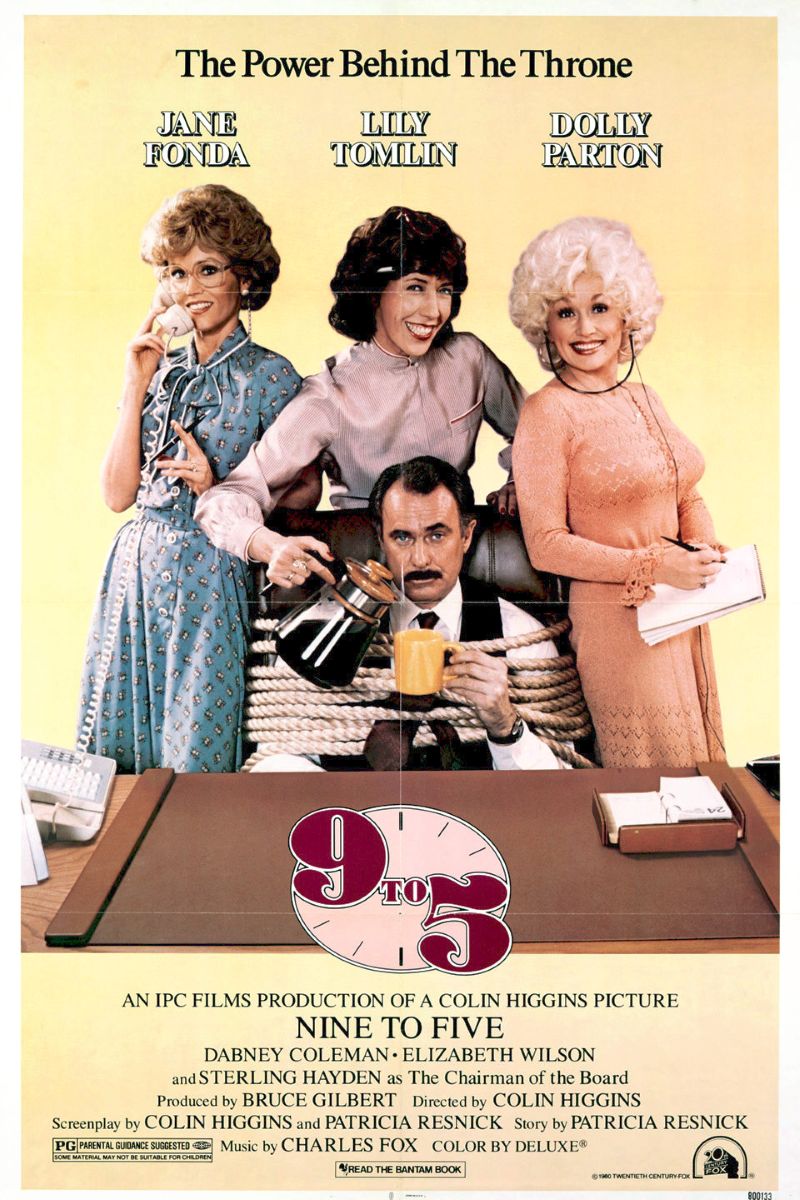
Bend It Like Beckham
Bend It Like Beckham
A British comedy-drama about two girls pursuing their football dreams, exploring gender expectations in South Asian immigrant families, cultural conflict, and women's participation in sports. Gurinder Chadha's groundbreaking film profoundly depicts women's struggles and growth in male-dominated sports.
主演
🎥 影评与解读
“Bend It Like Beckham” stands as one of the early 21st century’s most influential feminist sports films, using football as a vehicle to explore the complex intersections of gender, race, and cultural identity. Director Gurinder Chadha, through the football dreams of 18-year-old Jesminder “Jess” Bhamra (Parminder Nagra), presents the difficult choices facing a generation of immigrant women caught between traditional expectations and personal ambitions. This film, which turned a £6 million budget into £76 million worldwide, not only transformed the landscape of women’s sports cinema but established new benchmarks for cross-cultural feminist filmmaking.
Gender Revolution on the Playing Field
Football in “Bend It Like Beckham” represents far more than a sport—it serves as a battlefield where women challenge patriarchal systems and a weapon for breaking gender boundaries. Jess’s love for football transcends simple hobby; it represents a fundamental rejection of traditional female roles. Within the context of her Sikh family’s cultural background, football becomes a powerful symbol—neither conforming to traditional feminine “grace” standards nor meeting South Asian cultural expectations for daughters.
Gurinder Chadha cleverly uses Beckham’s signature “bend” technique as an overarching metaphor for the entire film. As she explained: “He has this great skill where when he kicks the ball, it doesn’t go in a straight line, it can twist and bend into the goal. I thought that was a great metaphor for a lot of us, particularly girls. We can see our goal, but we can’t get there in a straight line, we also have to sometimes twist and bend the rules to get what we want.”
This ability to “bend the rules” becomes central to women’s survival strategies. Jess cannot directly confront her family’s expectations, but she can pursue her dreams through clever maneuvering. This strategy is not weakness but wisdom—creating space for oneself without completely rejecting cultural identity.
The Triple Burden of Immigrant Women
Jess’s predicament represents the unique triple pressure faced by immigrant women: gender expectations, cultural traditions, and mainstream society integration demands. As a daughter in a Sikh household, she’s expected to focus on academics, cooking skills, and appropriate marriage prospects. As a member of British society, she yearns to participate in mainstream cultural activities. As a talented athlete, she dreams of a professional football career.
The conflict between these three identities receives meticulous exploration in the film. Jess’s father Tony (Anupam Kher) was once a cricket player who abandoned his sports career after facing racial discrimination in Britain. His opposition to his daughter’s sports participation stems both from traditional gender role concepts and fear of racial discrimination. This complex motivation makes him not merely an obstacle but a victim himself.
The film avoids the trap of demonizing immigrant parents, instead revealing the historical trauma and cultural anxieties behind their behavior. Tony’s protective instincts toward his daughter arise from his personal experience with British society’s discrimination—protection that limits Jess’s freedom while reflecting immigrant parents’ helplessness and pain.
The Complexity of Female Friendship
The friendship between Jess and Jules (Keira Knightley) represents another important theme. Their relationship is simultaneously cooperative and competitive, supportive and tense. This complexity reflects the true state of female friendship in patriarchal society—women need mutual support to combat gender discrimination while inevitably competing for limited opportunities.
Jules comes from a white middle-class family but faces equally severe gender expectations. Her mother Paula (Juliet Stevenson) wants her daughter to be more “feminine,” worrying that her athletic interests will affect her heterosexual identity. These concerns reflect mainstream society’s stereotypes about female athletes, assuming sports participation will “defeminize” women.
The romantic conflict between the two women over coach Joe (Jonathan Rhys Meyers), while adding dramatic tension, more importantly reveals how women pursuing their dreams are forced to choose between friendship and romance. Though somewhat clichéd, this setup points to a deeper question: why must women’s success stories always become entangled with romantic relationships?
Body Politics and Cultural Representation
The film’s portrayal of the female body carries important political significance. The scar on Jess’s leg becomes a crucial visual symbol—both a mark of her football career and a sign of her cultural identity. In Indian culture, female bodily “perfection” is crucial for marriage prospects, and this scar represents Jess’s deviation from traditional beauty standards.
More importantly, the film showcases the power and beauty of female athletes’ bodies, challenging traditional feminine body images. On the football field, Jess and Jules’s bodies are not objects of the gaze but subjects of action. Their sweat, muscles, and skills are tools of self-realization, not decorations to please others.
Costume choices in the film also carry symbolic meaning. Jess’s switches between traditional Indian clothing and athletic wear visually represent her navigation between different cultural identities. Each clothing change marks identity transformation and power relationship adjustments.
Cross-Cultural Feminist Practice
As a British-Indian female director, Gurinder Chadha’s identity embodies cross-cultural feminism. She neither completely rejects Indian cultural traditions nor blindly embraces Western values, instead seeking balance and synthesis. This stance is reflected in the film’s ending—Jess ultimately gains her father’s support and realizes her personal dreams without completely abandoning her cultural identity.
The film avoids cultural binary opposition traps, neither portraying Indian culture as completely oppressive nor Western culture as completely liberating. Instead, it shows the complexity and diversity within both cultures. Indian culture contains voices supporting women (like Jess’s friends and some family members), while Western culture also displays gender discrimination (like prejudices against female athletes).
Economic Independence and Professional Ambition
The film’s emphasis on women’s economic independence carries significant meaning. Jess’s football dream represents not just personal interest but professional ambition. She desires not a hobby but a career—the foundation of economic independence. This setup challenges traditional notions of women’s “optional” relationship to careers—traditionally, women’s careers are often viewed as supplements to marriage and family, not core concerns.
The opportunity for an American university scholarship provides Jess with both educational and career development guarantees. This plot device emphasizes education’s importance for women’s liberation. Educational opportunities gained through sports become pathways for breaking through class and cultural limitations.
Contemporary Significance and Lasting Impact
More than two decades later, the questions raised by “Bend It Like Beckham” remain relevant. While women’s sports have indeed made significant progress, gender inequality persists. Pay gaps, media attention differences, and unequal sponsorship opportunities remain common in today’s sports world.
The successful hosting of the 2023 Women’s World Cup and its widespread attention proved women’s football’s enormous potential while validating “Bend It Like Beckham’s” prescience from twenty years ago. Gurinder Chadha’s recently announced sequel plans respond to and continue these changes.
For immigrant women, cultural identity challenges persist. In today’s globalized world, how to maintain cultural roots while integrating into mainstream society, how to respect traditions while pursuing personal freedom—these questions are more complex and urgent than ever.
Breaking Stereotypes Through Sports
The film’s treatment of female athleticism directly challenges stereotypes about femininity and physical capability. Jess and Jules are portrayed as skilled, competitive, and passionate about their sport—qualities traditionally associated with masculinity but shown here as naturally feminine expressions of talent and determination.
The movie refuses to make its protagonists choose between athletic excellence and feminine identity. Both women can be fierce competitors on the field while maintaining their individual expressions of womanhood off it. This integration of athletic and feminine identities was groundbreaking in 2002 and continues to influence sports representation today.
Family Dynamics and Generational Change
The film explores how families adapt to changing cultural contexts across generations. While Jess’s parents represent first-generation immigrants holding onto traditional values for security and identity, Jess embodies second-generation desires for integration and opportunity. The tension between these positions drives much of the film’s dramatic conflict.
Importantly, the resolution doesn’t require either side to completely abandon their position. Instead, it shows how families can evolve together, with parents learning to support their children’s dreams while children maintaining respect for their cultural heritage. This nuanced approach to family conflict provides a more realistic and hopeful model for immigrant families navigating cultural change.
Sports as Social Commentary
Beyond its entertainment value, the film uses football as a lens for examining broader social issues. The sport becomes a metaphor for fair play, teamwork, and merit-based achievement—values that challenge discriminatory practices in other areas of life. When Jess succeeds on the field, she demonstrates that talent and dedication matter more than gender or ethnicity.
The film also addresses the economics of sports, showing how athletic scholarships can provide educational opportunities otherwise unavailable to working-class families. This connection between sports and social mobility highlights how breaking barriers in one area can create opportunities in others.
Media Representation and Industry Impact
“Bend It Like Beckham” proved that films centered on women of color could achieve both critical acclaim and commercial success. The movie’s box office performance demonstrated audience appetite for diverse stories, influencing subsequent filmmaking decisions across the industry.
Parminder Nagra’s breakthrough performance provided representation for South Asian women in mainstream cinema, showing them as complex protagonists rather than exotic others or assimilated characters who had abandoned their cultural identity. This representation influenced casting and storytelling choices in later films and television shows.
Legacy and Influence
The film’s influence extends beyond cinema to real-world sports participation. Many young women cited the movie as inspiration for taking up football or other sports, contributing to increased female participation in athletics. The character of Jess became a role model for immigrant women navigating between traditional expectations and personal ambitions.
The movie’s success also paved the way for other cross-cultural feminist films, demonstrating that stories about the immigrant experience could resonate with mainstream audiences while maintaining cultural authenticity and complexity.
Conclusion
“Bend It Like Beckham” succeeds as both entertaining sports comedy and serious examination of cultural identity, gender expectations, and family dynamics. Its lasting impact lies in its demonstration that individual dreams and cultural heritage need not be mutually exclusive—that it’s possible to honor one’s background while pursuing personal goals.
The film’s message about “bending” rather than breaking rules provides a valuable lesson in strategic thinking and cultural navigation. It shows that progress often comes through creative problem-solving and patient persistence rather than direct confrontation or complete rejection of traditional values.
Twenty years later, as discussions about diversity, inclusion, and cultural identity continue to evolve, “Bend It Like Beckham” remains relevant and inspiring. It reminds us that true victory lies not in defeating others but in becoming the best version of ourselves while staying true to our values and relationships. In the end, the most important goal is not the one scored on the field but the one achieved in life—the goal of authentic self-expression and mutual understanding across cultural divides.
🏆 获奖与荣誉
- • British Independent Film Award for Best Newcomer Director
- • Empire Award for Best Newcomer (Parminder Nagra)
- • Teen Choice Award for Best Comedy Film
⭐ 评分与链接
相关推荐
讨论区
分享您的想法和观点
加入讨论
分享您的想法和观点
加载评论中...

